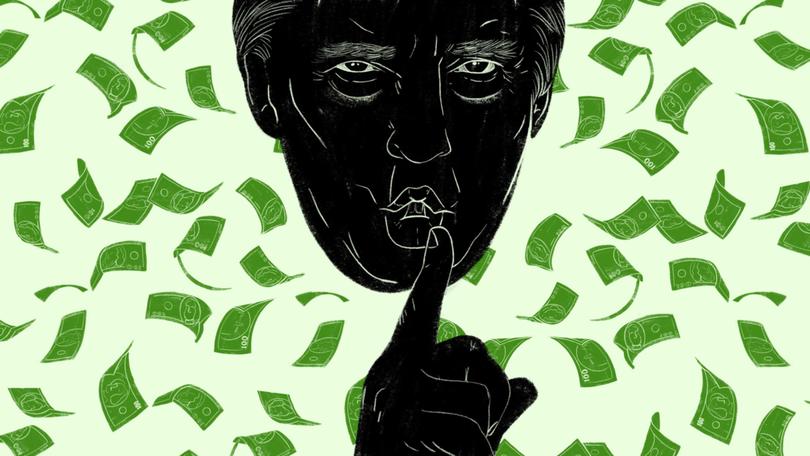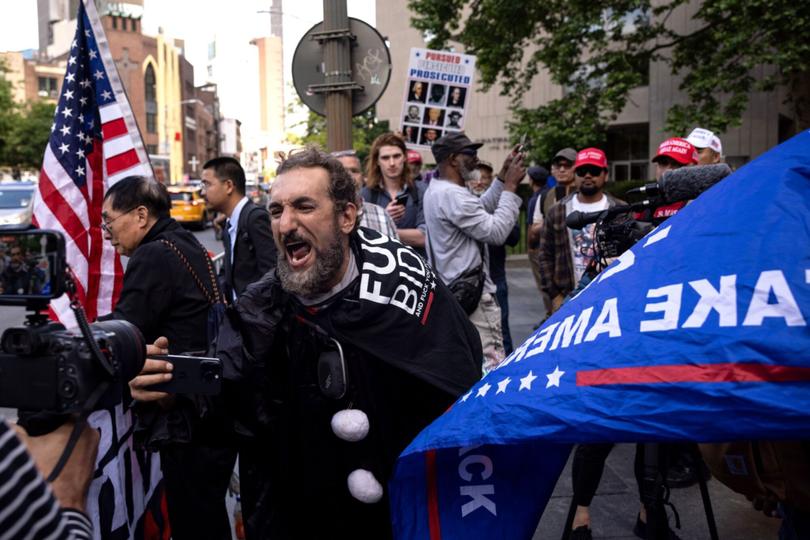THE ECONOMIST: The disgrace of former American President Donald Trump
The outcome would seem to vindicate a fundamental American principle, that no citizen is beyond the reach of justice. Yet this prosecution will probably do more to weaken than affirm the rule of law.

For the first time a former American president has been convicted of a felony — 34 felonies, in fact.
This historic disgrace should both shock the nation and reassure it about its capacity to achieve justice. That the conviction of Donald Trump will probably accomplish neither result testifies partly to the corrosive power of Mr Trump’s shamelessness and partly to the complex, contestable nature of the charges brought against him.
A jury of Mr Trump’s peers weighed the evidence and unanimously convicted him of breaking election law by covering up payments of hush money to a porn star, Stormy Daniels, who says she had an affair with him.
Sign up to The Nightly's newsletters.
Get the first look at the digital newspaper, curated daily stories and breaking headlines delivered to your inbox.
By continuing you agree to our Terms and Privacy Policy.In itself, the outcome would seem to vindicate a fundamental American principle, that no citizen is beyond the reach of justice. Yet over the long run, this prosecution will probably do more to weaken than affirm the rule of law.
Legal experts have cited numerous avenues for credible appeal, and any appeal will not be resolved until long after the November election. That will make it all the easier for Mr Trump’s supporters to embrace his arguments that he is the victim of a biased judge and jury.
This verdict is particularly vulnerable to appeal because of the lack of clear precedent for the charges the Manhattan district attorney, Alvin Bragg, chose to bring.
Falsifying business expenses is a misdemeanour under New York law, but by arguing that that crime was committed in order to commit or conceal another one, Mr Bragg was able to charge Mr Trump with felonies. Prosecutors argued, and Judge Juan Merchan agreed, that jurors did not even have to agree on precisely what other law Mr Trump violated, resulting in a vagueness that is sure to be one of the grounds for appeal.

Mr Bragg, a Democrat, was elected to his post after boasting that he was most qualified to prosecute Mr Trump, giving the former president further grist to say he is the victim of political persecution by allies of his opponent, President Joe Biden.
That this verdict is particularly vulnerable to Mr Trump’s claims that the system of justice is being “weaponised” against him may seem a perverse reason to criticise it. No political figure should be able to hold the law hostage, extorting immunity from prosecution in exchange for not degrading the system of justice in the eyes of followers. But prosecutors exercise wide discretion in choosing what cases to bring, for good reason.
They are supposed to consider not only the likelihood of conviction but also the seriousness of the crime and the public interest at stake.
Mr Bragg’s predecessor, as well as Mr Biden’s Justice Department, considered bringing versions of these charges and elected not to. Compared with the other cases pending against Mr Trump, this one always seemed too much of a stretch to command widespread public legitimacy, and polling in advance of the conviction suggested that even that will not enhance faith that justice is being done.
Further, this prosecution has done more to help than hurt Mr Trump’s chances of winning back the White House, and, as the insurrection of January 6th 2021 ought to have made clear, that is a greater hazard to the rule of law than any fraudulent book-keeping.
He was waning as a political force before Mr Bragg charged him in April 2023. The indictment put Mr Trump back in the spotlight, and even his Republican critics, including his opponents for the nomination, fell into line, supporting his claims of victimisation.
Mr Trump rebounded among Republicans in the polls and began his march to the nomination. His proud defiance of the prosecution, including his recent rally before thousands of supporters in the South Bronx, has contributed to his image of strength. Mr Biden’s lacklustre campaign has struggled to take advantage of Mr Trump’s legal woes without implicitly lending credence to suspicions that they are political.
When Mr Bragg brought his case, he said he wanted to establish the importance of “true and accurate record-keeping”. At trial, prosecutors argued that the stakes were far higher, saying Mr Trump’s fraudulent record-keeping may have enabled him to “hoodwink voters” and win in 2016.
Maybe this conviction, as some polling suggests, will cause independent-minded voters to abandon Mr Trump. If not, then paying hush money to Ms Daniels may now help elect Mr Trump a second time.
